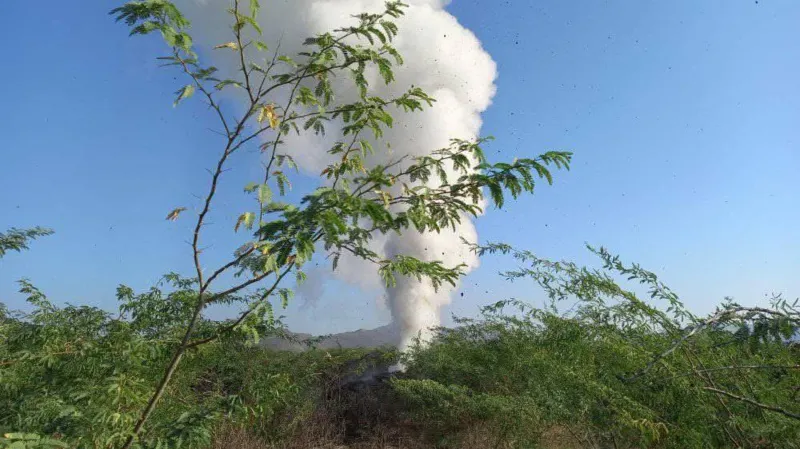Residents of rural villages in Ethiopia have been forced to abandon their homes and livelihoods in panic as volcanic activity intensifies in the region. Reports from local authorities and witnesses reveal a rapidly evolving situation, with plumes of ash, tremors, and lava flows threatening communities near the affected areas.
The eruption, which began with minor tremors, has escalated over the past few days. Villagers describe the experience as terrifying, with the ground shaking beneath them and the skies darkened by clouds of ash. “We had no choice but to leave everything behind,” said one resident. “We could feel the heat and hear the rumbling. It was like the earth was angry.”
Local government officials have urged immediate evacuation for communities within a 20-kilometer radius of the volcanic site. Emergency response teams have been deployed to assist with evacuations and provide temporary shelters. However, the logistical challenges of relocating entire communities, especially in remote and underdeveloped regions, have slowed the process.
Scientists monitoring the situation have indicated that the volcanic activity stems from tectonic movements along the East African Rift. This geological fault line, which stretches across the continent, is known for its potential to trigger earthquakes and volcanic eruptions. Experts warn that the eruption could worsen, posing further risks to those who remain in the area.
Environmental concerns are also mounting. The ash and gases released into the atmosphere could impact air quality and agriculture, potentially leading to food shortages. Livestock, a critical source of livelihood for many villagers, has already been affected, with reports of animals suffering from respiratory issues and burns.
Aid organizations have called for immediate international support to address the crisis. Food supplies, clean water, and medical aid are urgently needed to help displaced families. “The scale of this disaster is beyond what the local resources can handle,” said a representative from a humanitarian agency.
Despite the chaos, some residents remain hesitant to leave their ancestral lands. For many, the cultural and emotional attachment to their homes runs deep. “This is the land of our forefathers,” one elder explained. “Leaving it feels like losing a part of our identity.”
The Ethiopian government has pledged to provide support to the affected regions and is working with international experts to monitor the volcano’s activity. As the situation unfolds, there is a growing sense of urgency to ensure the safety and well-being of the displaced communities.
This disaster serves as a stark reminder of the unpredictable power of nature and the importance of preparedness in mitigating the impact of such events. For now, the priority remains the safety of those at risk and the swift mobilization of aid to alleviate the suffering of those affected.




















